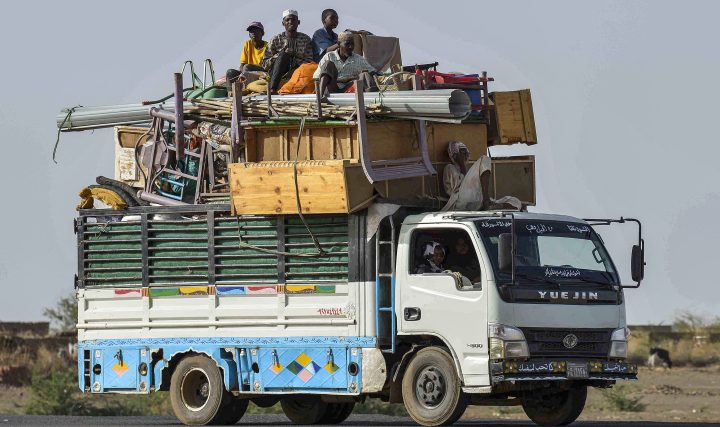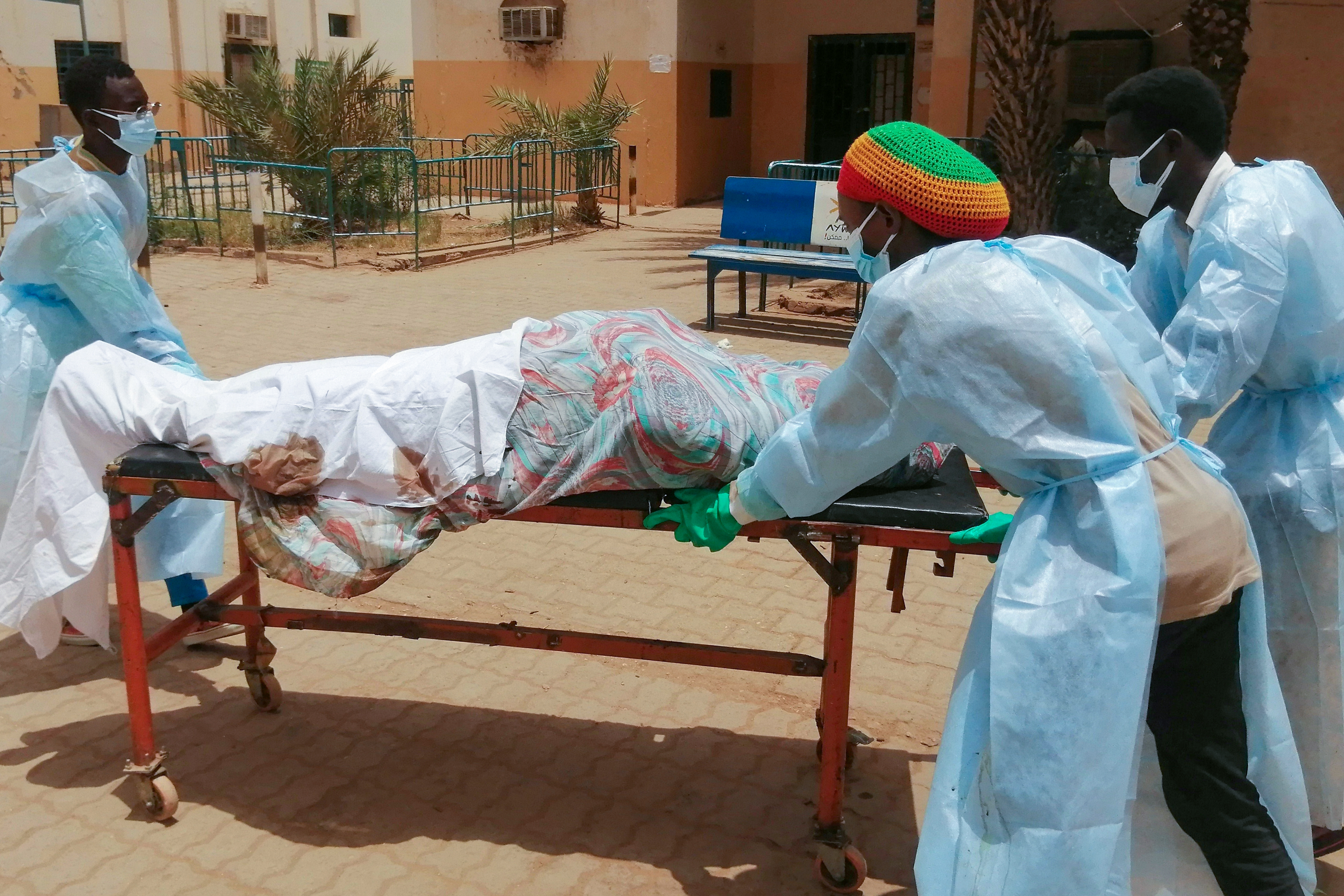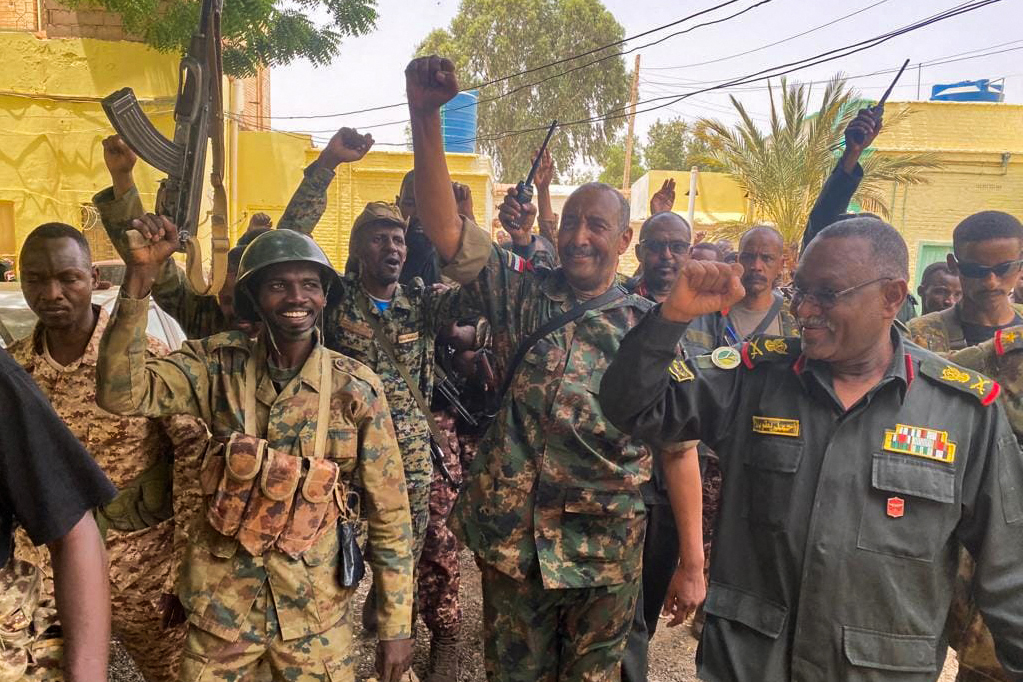HUMANITARIAN EMERGENCY OP-ED
Sudan must be pulled back from the brink – we ignore it at our collective peril

The UN Security Council has shown itself to be paralysed, while the inadequate response of the international community to the human suffering is a cause for great concern.
There are few countries more troubled, more volatile and more likely to implode than Sudan. It has been more than four months since the latest round of fierce fighting broke out across the country between the forces controlled by the military government in Khartoum led by Abdel Fattah al-Burhan, and the Rapid Support Forces (RSF) headed by Mohamed Hamdan Dagalo (Hemedti). The two sides were allies until recently, but are now in a fight to the death over who controls the levers of power.
According to conservative estimates, more than 5,000 persons have been killed in the fighting. The UN estimates that more than 4.6 million people have fled their homes, and about 50,000 of them have fled outside Sudan’s borders. Indeed, the UN Under Secretary-General for Humanitarian Affairs and Emergency Relief Coordinator, Martin Griffiths, recently issued the stark warning: “The war in Sudan is fuelling a humanitarian emergency of epic proportions…. The viral conflict and the hunger, disease and displacement left in its wake, now threaten to consume the entire country.”
Conflict is not new to Sudan. A miserable situation has persisted for several decades now, with a previous ruthless authoritarian regime stoking a disastrous civil war, especially in Darfur. There was a short-lived glimmer of hope a few years ago when a peaceful popular revolution led to an agreed transition plan, but this quickly fell victim to the ambitions of power-hungry military factions.

In this picture taken on June 20, 2023, nurses transport a body on a trolley at the al-Bashayer hospital in northern Khartoum. (Photo by AFP)
But by all accounts, the latest cycle of violence is unprecedented, with the intense fighting taking place in the densely populated capital city of Khartoum. The price for this is paid by innocent civilians, who are not only caught in the crossfire between the two rival armies, but also are deprived of food, water, electricity and other basic essentials, not to mention the serious disruption of education, health and other social services.
Various attempts at bringing about a ceasefire have so far proved unsuccessful and the appeals of the international community… have fallen upon deaf ears.
Worse still, terrible atrocities are being committed – from wanton pillage to sexual violence against women and girls. Mass killings and destruction of homes and property are also reported from Darfur.
Various attempts at bringing about a ceasefire have so far proved unsuccessful and the appeals of the international community – the African Union, the Intergovernmental Authority on Development, the United Nations, the European Union, the US and many others – have fallen upon deaf ears. It has not helped that some countries in the region and beyond have taken sides in the conflict and poured fuel on the fire.

This picture released on the Sudanese Army’s Facebook page on May 30, 2023, shows army chief Abdel Fattah al-Burhan cheering with soldiers as he visits some of their positions in Khartoum. (Photo: AFP PHOTO / HO / SUDAN’S ARMED FORCES FACEBOOK PAGE)
Far-reaching consequences
Sudan is a key country in Africa, where instability and strife reverberate far beyond national borders. The situation there impacts on the entire Horn of Africa, on the Sahel, on north Africa and on the Arabian Peninsula. Refugees and migrants from Sudan are also among those who attempt perilous Mediterranean crossings in the hope of a better life on the European continent.
Read more in Daily Maverick: Sudan conflict exposes African Union’s weakness in delivering humanitarian action in times of crisis
The dire humanitarian crisis calls for a concerted international response. The UN Security Council, established to be the custodian of international peace and security, has shown itself to be paralysed. The inadequate response of the international community to the human suffering being witnessed in Sudan is lamentable and a cause for great concern.
Read more in Daily Maverick: Former oil firm executives go on trial in Sweden over Sudan war crimes
There are no ready-made solutions to the crisis in Sudan, but the problem is ignored at our collective peril. Influential outside actors, instead of aligning themselves with the combatants, need urgently to coordinate their diplomatic efforts to bring about an urgent end to hostilities and help negotiate a sustainable political dispensation. The people of Sudan deserve no less. DM
The authors are members of the Global Leadership Foundation, a group of former leaders who are available to share their experience with current leaders in the effort to make the world a better place.
Lakhdar Brahimi is a former foreign minister of Algeria (1991-93) and Special Adviser to the UN Secretary-General (2004-05).
Helen Clark is a former prime minister of New Zealand (1999-2008) and Administrator of the UN Development Programme (2009-17); she is the current chair of the GLF.
Chester Crocker is a former US assistant secretary of state for African Affairs (1981-89).
Mohamed ElBaradei is a former director-general of the International Atomic Energy Agency (1997-2009) and interim vice-president of Egypt (2013)
Roelf Meyer has held several Cabinet positions in South Africa, the last being minister of constitutional development and provincial affairs (1994-96)


















 Become an Insider
Become an Insider
Stating the obvious is not helpful.